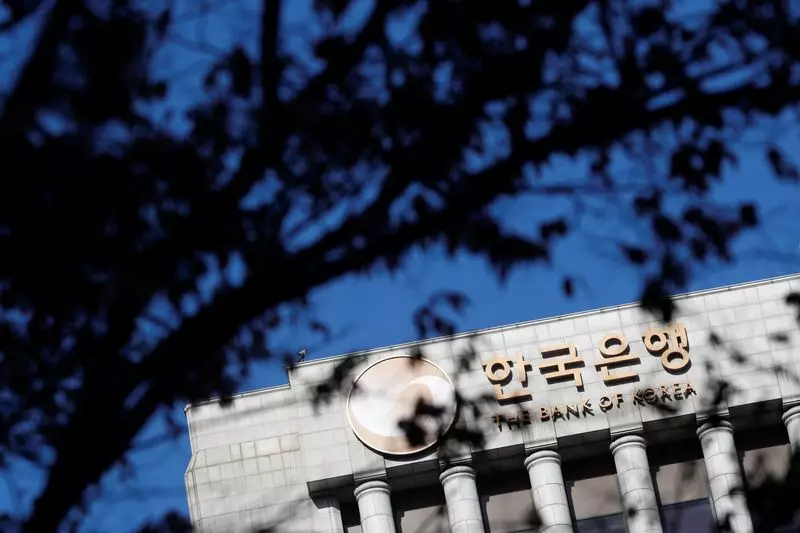In a surprising twist, South Korea’s central bank, the Bank of Korea (BOK), announced an interest rate cut on Thursday, reducing the benchmark rate to 3.00%. This decision had been anticipated by only a minority of economists, highlighting an unexpected shift in monetary policy in response to faltering economic growth. The rate cut marks the second consecutive decrease and reflects the board’s concern regarding the nation’s economic landscape amidst ongoing geopolitical uncertainties, particularly regarding trade relations with the United States and the potential return of former President Donald Trump.
Governor Rhee Chang-yong’s comments during the announcement underscored this apprehension, as he noted that anything less than favorable international trade relations could severely impact South Korea’s export-reliant economy. The BOK’s decision to cut rates is particularly telling of the challenges faced by Asia’s fourth-largest economy, which has struggled with both inflation and export performance.
The BOK’s move comes at a time when South Korea’s economy barely avoided a technical recession in the last quarter, managing only a marginal growth of 0.1%. This sluggish expansion resulted from a sustained slowdown in private consumption and declining export levels. These developments have raised serious concerns among policymakers, who are now considering legislative measures such as supplementary budgets to stimulate the economy and bolster consumer spending.
Furthermore, the anticipated changes in the strategic economic policies of the incoming Trump administration contribute to rising anxiety among local industries, such as semiconductors. With South Korea registering a record trade surplus of $44.4 billion with the U.S. in 2023, the expectation of heightened trade tensions could threaten this favorable position, demanding urgent action from the government.
The potential for new tariffs poses a significant threat to South Korea, especially with China, its largest trading partner, reportedly facing tariffs as high as 60%. This precarious situation amplifies the need for the BOK to navigate its monetary policy carefully, balancing the demands of a sluggish domestic economy with the complexities of international trade. The board’s decision, supported by a majority of five out of seven members, indicates a necessary pivot towards economic revival.
As analysts discern the BOK’s next moves, they note that at least three members are inclined toward further easing measures in the upcoming months. This strategic openness suggests that additional rate cuts could be forthcoming as the bank seeks to mitigate the economic impact of global uncertainties and sustain domestic growth.
In conjunction with interest rate adjustments, the BOK has also revised its forecasts for growth and inflation for the coming years. The anticipated economic growth for 2024 has been reduced to 2.2% from an earlier 2.4%. Projections for consumer inflation have also been moderated, indicating a collaborative effort between monetary policy and economic realities.
Despite these cuts, there is further room for cautious optimism as global monetary policies shift in response to economic slowdowns. Central banks in countries like New Zealand, Canada, and Sweden have also engaged in aggressive rate cuts, presenting a synchronized effort to curb economic downturns. The financial market responded to the BOK’s announcement with increased trading activities in policy-sensitive treasury bonds, indicating market expectations for further monetary easing.
As South Korea gears up for a new chapter under an uncertain political landscape, the ramifications of interest rate cuts will be closely monitored. The ability of the BOK to navigate these complexities will play a crucial role in shaping the future trajectory of South Korea’s economy. Policymakers must not only focus on immediate stabilization measures but also prepare for potential long-term repercussions of international trade dynamics and domestic economic conditions. The road ahead may be fraught with challenges, but proactive engagement and strategic decision-making by the BOK can provide much-needed support for the economy during these turbulent times.

